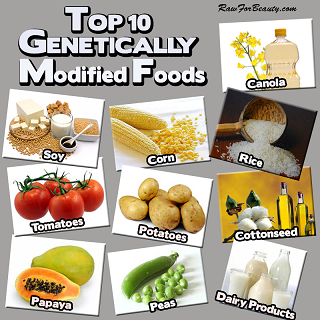The Demise of American Democracy and its Ramifications

Again, solely from the viewpoint of science, after many years of testing, it’s very likely that soon all of the top people studying the subject will agree that GMOs pose little or no real risk to human health. And that’s especially important when it’s stacked up against the need to accelerate the processes by which we create bigger, stronger, healthier plants and animals to eat, in order to feed a population that is in the process of quintupling in 100 years (from 2 billion in 1950 to 10 billion in 2050).
There are, however, numerous things about which we should be deeply concerned:
The Decision to Implement GMOs Initially. Here’s an interesting aspect of all this. Do you know who made this decision? Here’s a hint: It wasn’t you, and it wasn’t your representative in Washington. It was Monsanto and the other multinational agribusiness concerns. They didn’t ask us for permission, or even for our feedback. About 20 years ago, they simply said, “Here’s something we’re doing. It will make us far more profitable than ever before, and it will affect the vast majority of the food the world eats. You can choose to trust us on this or not, but our R&D people say that there’s no reason for concerns about health.”
Note that this in no way parallels a corporate decision to build a certain car or computer or smartphone, in which cases the consumer both a) has many choices he can make based on the knowledge of what he’s buying, and b) is clearly unaffected from a health perspective, as he might be by a major alteration to the world food supply.
Agribusiness Simply Refuses to Label Genetically-modified Food. And there is not a damn thing that anyone of us can do about it. Whether you’re the man on the street or the CEO of a Fortune 500 company—whether you’re the mayor of some cow town or the President of the United States, you are equally powerless to affect change here. Agribusiness (along with the oil companies, of course) is one of the wealthiest and most powerful organizations in the history of humankind, and can afford to fight this in the courts and in the public relations arena indefinitely. To put it in the vernacular of a client I had decades ago, “They can make it rain longer than the consumer protection groups can tread water.”
What This Means About Our Democracy. I submit that there is something wrong about a “democracy” in which the will of the people has no effect whatsoever on the people elected to represent them. I’ll go you one further: given these conditions, the very term has no meaning. A few days ago I referenced a recent report from Princeton University that revealed that law-makers vote in lock-step with the interests of those who have given them enormous campaign contributions, but the will of the people has no bearing on the voting outcome whatsoever. Take a second and ask yourself: What exactly does this mean?
From that post:
Pick something the common voter happens to hold dear: (though it could be GMO labelling, but might more likely be) clean energy and the environment, education, national security, immigration, gun control, etc., and then realize that the beliefs of the voters on the matter have exactly zero statistical bearing on the way Congress votes on that matter. If you really understand that, you understand what it means when you hear someone say, “The U.S. democracy is dead.”
Here are a few facts that came from the most recent presentation that Harvard Law professor and Mayday founder Lawrence Lessig gave to a large and earnest audience.
- Americans almost unanimously agree on two things: a) money has too much influence on politics, and b) there is nothing that can be done to change this.
- 5.4 million Americans (a little under 2%) made cash donations to a politician in the last election, but the top 100 gave more than the bottom 4.75 million.
- A study from Princeton University shows an almost 100% correlation between Congressional votes and the interests of these Top 100. The same study shows that the decisions that Congress makes on a variety of issues are completely independent of the will of the people. Whether 20%, 40%, 60%, or 80% of the electorate supports a certain subject, this has no statistical bearing whatsoever on how the Senate and the House will vote on the matter.
That Monsanto then goes on to implement the most abusive and oppressive business practices imaginable vis-à-vis the farmers of the world is a story for another day.
Sorry to say it so flatly, but either we change this, or deal with the result: all the things we say we want, e.g., better education and healthcare, will forever remain elusive.

Craig – thousands of years of selective breeding results in a genome where the sequences are the result of natural splittings and joinings. With genetic engineering, gene placement is more random. No one knows for sure the implications of these unnatural breaks and joins. It may not make any difference, but then again it might. Labeling seems like a prudent idea. – Peter